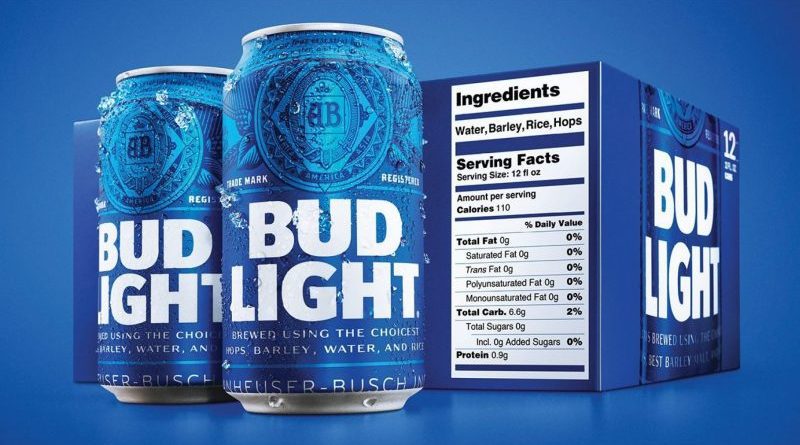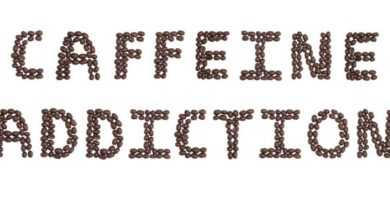Bud Light Adds Nutrition Label to Their Beer Packaging
We are all human. And as humans, many of us like to partake in adult beverages – even if we are in the health and fitness industry. Some of us enjoy a scotch while others like to pop the top of a cold one and enjoy an ice-cold beer. Whichever you choose, you have probably noticed that there are no nutrition labels on them. Those interested in tracking their macros would often question how they should record their alcohol consumption (drinking in moderation). Bud Light has seemed to take the first step in transparency and is now adding their ingredients and nutrition label to their packaging. Is this a step in the right direction or has the brand had one too many in thinking this will change anything? Or maybe that’s just the point?
Table of contents

This Bud’s for You (A Little Bud Light Humor)
Liquid calories are some of the most dangerous calories consumed simply because most people don’t think about how much they actually drink or even take the time to measure it out. This can cause considerable weight gain in both the short and long-term. When it comes to alcoholic beverages like beer, a weekend party or a night out with the guys can easily cause you to consume well over 1,000 calories without you even thinking twice about it.
When you look at products found at the grocery store, you’ll notice a common theme – they all have nutrition labels on them showing the ingredients and macro-nutrients. This raises the question as to why alcohol isn’t required to follow suit? What makes the alcohol market different or special that they don’t need to be transparent with their products?
Related Article: What is Prop 65 on a Nutrition and Supplement Label?
A couple of years ago started a movement where those in the light beer category were fighting over who had the lowest calorie and lowest carb beer in the space. Now, Bud Light is making the first bold move by including a gigantic nutrition label on their packaging – similar to what you see required by the US Food and Drug Administration.
Looking at the Bud Light nutrition label, at the very top, you will notice they list out all of the ingredients in the product. Underneath you’ll find the calories as well as the macro breakdown. This seems to be a step in the right direction but what will the overall impact be from adding the nutrition label to the packaging?
Cheers to Transparency?
While a step in the right direction, the nutrition label will only be found on the actual case of Bud Light. Individual cans and bottles will not have the nutrition label present where it breaks everything down. So, in the long run, will this really change anything when it comes to the overall consumption of the product? In my opinion, no.
Related Article: Brand’s Nutrition Facts — Stop with Ridiculous Serving Sizes
When you buy beer (assuming you’re 21), what do you generally get or do with your purchase? If you buy a beer from a bar, you either get the individual can or bottle (which won’t have the nutrition label on it) or you get it in a glass. In this instance, you still don’t know what you’re drinking unless you have memorized the nutrition label. The second scenario is that you purchased a case of Bud Light from a beer distributor or store and took it home. The packaging at that point would have the nutrition label present.
But how many people put the entire case of beer in the refrigerator when they get home? Probably a very small percentage. What do they do? They remove the beer from the case and put the individual cans in the refrigerator which again do not show the nutrition label or information. Where does the packaging go? In the trash.
Is this move just a “make you feel good” marketing ploy? Is Bud Light trying to make it seem like they are doing the right thing by being “transparent” with their light beer? Maybe… maybe not? But the interesting thing I’m finding here is that in most of the scenarios presented, the nutrition label means nothing as you won’t keep the case the beer came in and you aren’t going to find the nutrition facts or label while sitting at the bar so not much is going to change from my point of view.
Bud Light Has Been Under Fire Lately
Here are a few reasons why Bud Light has faced some criticism and controversy in recent years:
- Ingredients and nutritional value: Like most mass-produced light beers, Bud Light has faced scrutiny over its ingredient list and lack of nutritional value. Critics argue it has very little protein, vitamins, or minerals and is essentially “empty calories.”
- Use of corn syrup: In 2019, Bud Light ran Super Bowl ads mocking competitors Miller Lite and Coors Light for using corn syrup in their brewing process. However, Anheuser-Busch later acknowledged that some Bud Light is also brewed with corn syrup. This led to backlash and accusations of hypocrisy.
- Misleading advertising: In 2020, Anheuser-Busch agreed to pay $5 million to settle a class action lawsuit accusing the company of misleading advertising over claims that Bud Light was “made with no corn syrup.” The lawsuit argued the ads were false and misleading.
- Sponsorships and partnerships: Some have criticized Bud Light’s ubiquitous sponsorships and partnerships as a way of promoting alcohol overzealously. For example, they have sponsored major sporting events and music festivals.
- Encouraging overconsumption: Health advocates argue the massive popularity of Bud Light encourages overconsumption of alcohol. They claim the light beer category specifically appeals to problem drinkers.
- Poor 2023 marketing plans: When Bud Light decided to partner with Dylan Mullaney, a transgender influencer, the internet exploded and before Bud Light knew what happened, they lost billions of dollars in a very short amount of time.
So in summary, Bud Light has faced criticism over its ingredients, truthfulness in advertising, promotion tactics, and questions about whether it encourages harmful drinking habits, even though it is a light beer. The brand remains controversial among some public health experts and consumer advocates.
Click here to continue reading…


*Disclosure: This article may contain affiliate links or ads, which means we earn a small commission at no extra cost to you if you make a purchase through these links. These commissions help support the operation and maintenance of our website, allowing us to continue producing free valuable content. Your support is genuinely appreciated, whether you choose to use our links or not. Thank you for being a part of our community and enjoying our content.
PLEASE CONSIDER SHARING THIS ON YOUR SOCIAL MEDIA TO HELP OTHERS LEARN MORE ABOUT THIS TOPIC.






